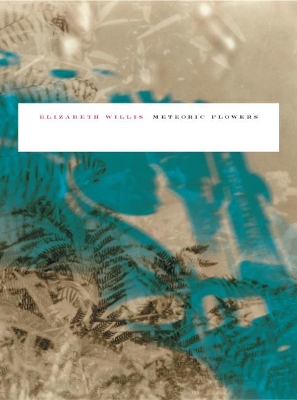Wesleyan Poetry
2 total works
Elizabeth Willis's new collection is a stunning collision of the pastoral tradition with the politics of the post-industrial age. These poems are allusive and tough. While they celebrate the pleasures of the natural world-mutability, desire, and the flowering of things-they are compounded by a critical awareness of contemporary culture. As we traverse their associative leaps, we discover a linguistic landscape that is part garden, part wilderness, where a poem can perform its own natural history. Divided into four cantos interrupted by lyrics and errata, Meteoric Flowers mirrors the form of Erasmus Darwin's 18th-century scientific pastorals. In attending to poetry's investigative potential, Willis shifts our attention from product to process, from commodity to exchange, from inherited convention to improvisational use.
Address draws us into visible and invisible architectures, into acts of intimate and public address. These poems are concentrated, polyvocal, and sharply attentive to acts of representation; they take personally their politics and in the process reveal something about the way civic structures inhabit the imagination. Poisonous plants, witches, anthems, bees-beneath their surface, we glimpse the fragility of our founding, republican aspirations and witness a disintegrating landscape artfully transformed. If a poem can serve as a kind of astrolabe, measuring distances both cosmic and immediate, temporal and physical, it does so by imaginative, nonlinear means. Here, past and present engage in acts of mutual interrogation and critique, and within this dynamic Willis's poetry is at once complexly authoritative and searching: "so begins our legislation."
Check for the online reader's companion at http://address.site.wesleyan.edu.
Check for the online reader's companion at http://address.site.wesleyan.edu.

